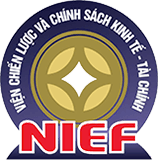New contributions and the doctoral thesis of the PhD student Nguyen Thi Xuan
23/04/2020 16:19
Thesis topic: Sustainable economic development in Bac Ninh province by 2030
Major: Development Economics Code: 9 31 01 05
PhD student: Nguyen Thi Xuan PhD Code:
Instructor : Assoc. Prof. Dr. Bui Tat Thang
Training facility: Vietnam Institute for Development Strategies - Ministry of Planning and Investment
Theoretical issues: The thesis has built a research framework for provincial sustainable economic development (PSED) research, including the following contents:
- Firstly, the thesis included the comprehensive contents of the provincial sustainable economic development according to the PSED approach (considering PSED as the first pillar), which is key for the sustainable development of the province, contributing to the implementation of the sustainable development goals at the provincial and national level based on exploiting the strengths of each province. It also needs to link with other provinces to effectively exploit general resources. Accordingly, the PSED is continuously maintaining the PSED in a long time. Following this, the PSED must ensure the conditions (i) stably high growth rate; (ii) the quality of growth is high and improved, which is reflected in a reasonable growth structure and effectively using economic resources; (iii) equality in economic development and (iv) renewable and developed factors in the economic development.
- Secondly, the thesis proposed a set of criteria for evaluating PSED with the following aspects: (i) ability of growth sustainability, (ii) quality of economic growth; (iii) participating equally in the economic development process; and (iv) the ability of maintaining and recreate the economic development elements.
- Thirdly, synthesizing a system of factors that can affect PSED, including: objective and subjective factors. In particular, the objective factors include: (i) natural conditions; (ii) socio-cultural conditions, national, regional and global environment; and the subjective factors include: (i) local legal documents, institutions, development policies; (ii) the capacity of the local government; (iii) infrastructure; (iv) mechanisms and policies for mobilizing, managing and using local resources.
In practice: Applying the theoretical framework to analyze the situation in Bac Ninh province, the thesis shows:
- In addition to the achieved achievements, there are a number of limitations in the sustainable economic development in Bac Ninh province, including: Firstly, unsustainable and unstable growth; second, the quality of growth is low; thirdly, participating in and enjoying the fruits of development is not really fair; Fourth, the ability to maintain and reproduce the elements of unsustainable development.
Dowload: Thesis summary


